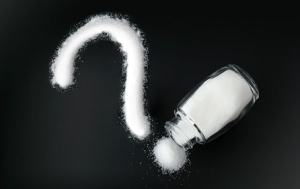
There used to be a kind and hardworking professor in our hospital. He died only few months ago. Yesterday, I passed by what used to be his office and the door bore another name. They have given Professor Akang’ s office to another man. That is not necessarily a bad thing, but it is instructive to me, and it should be to every doctor, particularly the younger ones.
Medical practice is demanding, and that is literal. Medicine stretches out her hand, daily asking you to give up your valuables, constantly placing a demand on your very being, your very essence, and you often cannot give enough.
They trained us to think that the more we give, the better we are, the more we are worth. So, we can be addicted to giving, to dashing out to the world, tangible pieces of our own lives. Ours is essentially a call to martyrdom. And martyrdom can be appealing. Let us not be confused though. Let us not believe a lie. As a man, you will not be able to save the world, regardless of what they tell you. That job description is taken already.
We should be dedicated doctors, committed to caring for our patients to the best of our abilities, but let it not be that we equate our lives to medicine, let it not be that we discard every other factor, sacrificing our own very existence on this hungry and cannibalistic altar.
For a young, ambitious doctor, the temptation is to say ‘I will begin to live a proper life when I have sorted out my career’. Well, people never really sort out their medical careers, never. In this job, your work is never done. That is why hospitals are open all day, every day.
Whatever a ‘proper life’ means to you, start living it today. I must know that I am not the one keeping the whole world alive, I am not the one keeping the world’s blood pressure and glucose levels down, I am not the one stopping cancers from spreading, I am not the one fixing the world’s fractured bones. When I am not there, the world will take care of itself.
A certain Dr Ameyo Adadevoh personally and literarily stood between Ebola and Nigeria one year ago. She gave her life for it. And the world applauded. That hospital most definitely has another consultant physician now. Her death did not stop people from embezzling funds that were meant to fight the same cause she so sacrificially gave herself for. That is the exact picture.
The doctor is in an abusive relationship with the world. Only that he often shows that he enjoys the relationship. The doctor himself has a name for that kind of behavior. It is called masochism. We should live the lives accorded to us. Shall we? I speak to you. I speak to myself.
For Effiong Akang and Ameyo Adadevoh.
Babatunde Yusuf
August 2015







